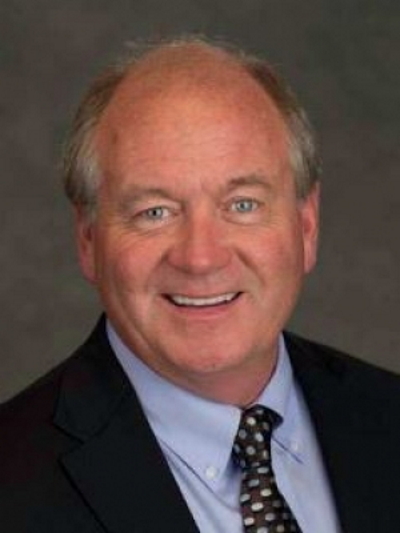A Court Battle Over Open Records
Court hears suit against former Natural Resources Board chairman, who won’t release any records.
A Dane County Circuit Court judge heard arguments Monday in a lawsuit filed by Midwest Environmental Advocates (MEA) to compel Dr. Frederick Prehn to surrender text messages, emails, and other communications related to his refusal to step down as chair of the Wisconsin Natural Resources Board (NRB) once his term expired. Prehn’s lawyers have filed a motion to dismiss the lawsuit. Judge Everett Mitchell signaled that a decision is likely to come later this week.
After realizing that Prehn hadn’t turned over text messages in response to a June 2021 open records request, MEA filed the lawsuit in October. Although his term expired in May 2021, Prehn refused to vacate his seat on the NRB. He later stepped down as chair of the board. It was a political battle, with Prehn’s refusal helping conservatives hold onto a 4-3 majority on the board. Some of the board members, including Prehn, were appointee’s of Gov. Scott Walker. From their seats, they steered crucial state environmental policies such as the wolf hunt and water management.
MEA alleges that, by withholding his communications, Prehn is violating open records law while simultaneously asserting undue political sway over Wisconsin’s natural resources.
Prehn’s motion to dismiss the lawsuit rests on an argument that he is not an authority under open records law, and that the requested documents are not records. During a court hearing on Monday, MEA staff attorney Rob Lee noted Prehn is the sole possessor of the communications, with neither the NRB nor the DNR having access to them without Prehn providing it himself. If Prehn is not an authority over his own communications, Lee asked, who is? “I think the answer would be nobody,” said Lee. “And that can’t be the law. It directly constricts the presumption of complete public access by creating a loophole, where officials can communicate outside of public view. And whether the public has access to those documents is entirely dependent on whether that official wants to turn the records over voluntarily. … there would be no enforcement mechanism to get at those records.”
Lee also argued that since Prehn occupies a state office, he cannot be separated from that office. He further addressed the argument that Prehn’s text messages are not records which, among other things, must have a connection to a government function. “I think what’s really important about determining whether a document is a record is that you have to examine the record, to determine whether the content of that record makes it a record,” Lee argued. “And the only document we have right now is the withheld text message we’ve cited in briefs and our complaint.” In one text message cited in the complaint Prehn wrote to fellow NRB member Bill Smith, “I’ve got to decide if I’m going to stay on until the next appointee is confirmed. Evers notified me he’s not going to reappoint me I guess he thinks there’s some pretty big agenda items that I might not agree with LOL.”
Further, Lee expressed concerns that the records could be in danger of being deleted or not preserved by Prehn. Attorney Mark Maciolek, however, pushed back on all of Lee’s arguments. “I don’t think that there is any law currently that tells us how the court is to determine whether any particular entity, individual, or part of government is an ‘authority.’”
Maciolek argued that a state officer is not among the categories defined as an authority under state law. “These are volunteers who are coming to essentially help keep the government running,” he continued. “And if they are tasked, as our elected officials, with policing and curating and managing all of their communications in the event that there’s some possibility that there could be a record, that’s a pretty burden to put on all these folks that, frankly, we are just lucky as citizens of this state, we are just lucky that they show up and do what they do.” Maciolek further pointed to provisions in law which state that an authority who handles administrative needs of another authority—such as the DNR’s relationship with the board—is required to designate a legal custodian for that other authority. “If every single member of the board is, in fact, an authority, then that statute would first of all be completely unnecessary and it would make no sense.”
Lee highlighted the ongoing impact of Prehn’s presence on the board. On Wednesday, the board is set to vote on whether to approve state standards for PFAS (per-and polyfluoralkyl substances) chemicals. The chemicals, used in the industrial and fast food sector for decades, have been linked to a variety of chronic diseases in animals and humans. Water contamination due to PFAS is an ever more pressing issue across the state.
“In two days,” said Lee, “Fred Prehn may be the deciding vote on critical public health standards. Yet, he started this week attempting to delay public transparency and accountability. It is past time Prehn turn over all records about his plan to continue to exert a controlling influence over environmental and public health policy in our state.”
Court battle over Natural Resources Board continues was originally published by the Wisconsin Examiner.























What is Fred Prehn attempting to conceal? Very likely his text messages contain communications with ranking Republican legislators that would reveal the questionable methods they use to retain power despite obvious violation of democratic principles.This untoward conniving is what the citizens of Wisconsin have come to expect of their Klaned Old Party.